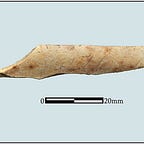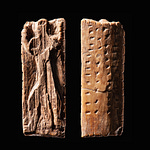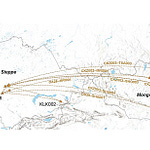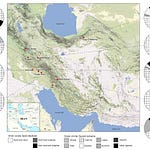The Mountains Between Worlds
The South Caucasus is a landscape built on collision—where continents meet and mountains rise like frozen waves between Europe and Asia. During the Middle Palaeolithic, roughly 130,000 to 40,000 years ago, this rugged terrain was a crossroads for Homo species who hunted, foraged, and survived in its demanding mosaic of valleys, forests, and uplands.

In a new study published in Antiquity1, archaeologists led by Anna Mgeladze of the Georgian National Museum describe discoveries at a site called Ormagi Ekhi, located in Georgia’s Shida Kartli region. The findings add a fresh dimension to our understanding of how Neanderthals and their relatives thrived at ecological margins—where the stability of survival was always at the mercy of wind, cold, and changing prey.










